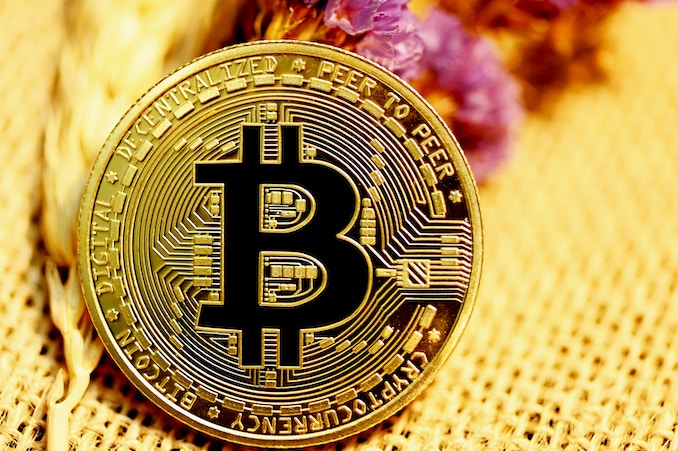In recent years, the convergence of digital currency and gaming has transformed the landscape of in-game economies. For example, one exciting development in this realm is the introduction of enticing offers in online casinos like 150 free spins for $5. This remarkable deal showcases the growing utilization of digital currency within the gaming industry, providing players with an opportunity to enjoy thrilling casino experiences at an affordable cost.

Digital currency, with its inherent advantages of convenience and security, has become a fundamental component of the gaming industry, enabling innovative monetisation strategies and enhanced user experiences.
Understanding In-Game Economies: The Role of Digital Currency in Gaming
In-game economies are virtual ecosystems where players engage in transactions using digital currency. These economies have become integral to many games, facilitating the exchange of virtual goods, services, and experiences.
Digital currencies have had a profound impact on the gaming industry, transforming the way players engage, transact, and monetize their gaming experiences. Here are some key ways in which digital currencies are impacting the gaming industry:
Secure and Efficient Transactions
With digital currencies, players can easily purchase in-game items and virtual currencies or access gaming services using cryptocurrencies or game-specific digital currencies. The decentralized nature of digital currencies ensures fast and transparent transactions, reducing the risk of fraud or unauthorized access.
Player Ownership and Control
Through blockchain technology and non-fungible tokens (NFTs), players can establish verifiable ownership of rare items, unique skins, or virtual collectables. This ownership enables players to trade, sell, or monetize their virtual assets outside of the game environment, fostering a sense of value and investment in their gaming experiences.
Monetisation Opportunities
Players can earn digital currencies through gameplay achievements, participate in blockchain-based games that offer rewards, or engage in e-sports competitions with cryptocurrency prize pools.
Enhanced Cross-Game and Cross-Platform Experiences
This allows players to utilise their currencies or assets across different games or platforms. Players can transfer or trade digital assets seamlessly between compatible games or ecosystems. This interoperability fosters a more connected gaming experience and enables players to leverage their investments and achievements across multiple gaming environments.
Decentralised Economies
Digital currencies promote the development of decentralized economies within games. Players can participate in player-driven economies, where supply and demand dynamics determine the value of virtual assets. This creates opportunities for players to engage in entrepreneurship, speculation, or investment within the gaming ecosystem, which contributes to the growth and sustainability of in-game economies.
Exploring Different Forms of Digital Currency in Gaming
Digital currencies have revolutionised the gaming industry, introducing various forms of currencies that enhance in-game economies and player experiences. Some games have their own proprietary virtual currencies, while others utilize widely recognized cryptocurrencies.
Here are some of the different forms of digital currencies used in gaming:
In-Game Currency
In-game currency, also known as virtual currency, is specific to a particular game or gaming platform. Players earn or purchase this currency within the game to unlock various items, upgrades, and abilities. In-game currency facilitates transactions within the game’s virtual world and acts as a medium of exchange for in-game goods and services.
Cryptocurrencies
Cryptocurrencies like Bitcoin and Ethereum have gained popularity as alternative forms of digital currency in gaming. They offer decentralized and secure transactions, allowing players to buy, sell, and trade virtual assets across multiple games or platforms. Cryptocurrencies also reduce the risk of fraud and promote transparency.
Tokenized Assets
Tokenized assets are digital representations of real-world assets or virtual items on a blockchain. These tokens can be sold, bought, or traded within gaming ecosystems. They enable players to own and monetize their virtual assets, such as rare weapons, skins, or collectables, outside of the game environment. Tokenized assets often use non-fungible token (NFT) technology, providing uniqueness and authenticity to each asset.
Gaming Platform-Specific Currencies
Some gaming platforms introduce their own digital currencies to facilitate transactions and create a dedicated economy within their ecosystem. Players can earn these currencies through gameplay or buy with real money. They often offer discounts on purchases, exclusive content, or faster progression within the platform’s games.
Monetisation Strategies: Leveraging Digital Currency for Profit
Entrepreneurs and game developers have harnessed the potential of digital currency to monetise gaming experiences and unlock profitable opportunities. Here are some ways entrepreneurs can take advantage of digital currencies to earn a profit in gaming:
Creating and Selling In-Game Items
Entrepreneurs can develop and sell virtual items within popular games. By identifying high-demand items or unique designs, they can create a market for these items and offer them for sale to players. Digital currencies enable secure and efficient transactions, allowing entrepreneurs to monetise their creativity and cater to the needs of avid gamers.
Building and Managing Virtual Marketplaces
Entrepreneurs can establish virtual marketplaces that facilitate the buying and selling of in-game assets. These platforms connect sellers and buyers, providing a centralized hub for transactions. By charging fees or commissions on transactions, entrepreneurs can generate revenue from facilitating trades and creating a thriving ecosystem for digital assets.
Operating Gaming Exchanges
Entrepreneurs can set up exchanges where players can trade digital currencies, in-game currencies, and virtual assets. These exchanges act as intermediaries, providing liquidity and enabling players to convert their currencies or assets into desired forms. By charging transaction fees or implementing premium features, entrepreneurs can generate profits from the exchange’s activities.
Creating and Operating Gaming Platforms
Entrepreneurs can establish their own gaming platforms that integrate digital currencies as a core component. These platforms can offer a range of games, virtual economies, and features that incentivize players to spend digital currencies within the platform. Revenue can be generated through in-app purchases, subscriptions, or advertisements, with digital currencies serving as the primary payment method.
Blockchain Technology: Enhancing Transparency and Security in In-Game Economies
Blockchain technology has emerged as a transformative force in the gaming industry, bringing transparency, security, and ownership to in-game economies.
By leveraging decentralized ledgers, blockchain enables verifiable transactions and ensures the scarcity and authenticity of virtual assets.
Smart contracts further enhance the trust and efficiency of in-game transactions, empowering players with true ownership and control over their digital assets.
NFTs and Collectibles: Redefining Ownership and Value in Gaming
Non-Fungible Tokens (NFTs) have revolutionized the concept of ownership in gaming. These unique digital assets, powered by blockchain technology, allow players to own and trade one-of-a-kind virtual items, artworks, and collectables. NFTs have introduced new avenues for creators, players, and entrepreneurs to generate value and monetize their creations within the gaming ecosystem.
Gambling and Casinos in the Digital Gaming Economy: Innovations in Casino Gaming
The integration of digital currency and gaming has also led to innovations in the realm of gambling and casinos. For example, there are now online casinos real money options, providing players with the option to play virtually with real money.

Here are some of the latest innovations in digital currencies and online gambling:
Blockchain-Based Gambling Platforms
Blockchain technology is being leveraged to create transparent, decentralized gambling platforms. These platforms utilize smart contracts to ensure fair play, eliminate the need for intermediaries, and enhance the security of transactions. Blockchain-based gambling platforms provide players with provably fair games, verifiable results, and increased trust in the integrity of the gambling process.
Cryptocurrency-Only Casinos
Online casinos that exclusively accept cryptocurrencies have gained popularity. These casinos allow players to wager and win digital currencies without the need for traditional fiat currencies. Cryptocurrency-only casinos provide fast and secure transactions, and anonymous gambling, and often offer exclusive bonuses and rewards for cryptocurrency users.
Tokenization of Casino Assets
This involves representing real-world assets, such as land-based casinos or revenue streams, as digital tokens on the blockchain. This allows for fractional ownership and enables investors to participate in the profitability of casinos through tokenized assets.
NFT-Based Casino Games
Non-fungible tokens (NFTs) have made their way into the online gambling space, adding uniqueness and scarcity to virtual assets. These games allow players to own and trade rare and valuable in-game items, such as virtual casino chips, character skins, or collectable cards.
Decentralized Finance (DeFi) in Gambling
DeFi protocols are being integrated into the online gambling space, enabling players to participate in decentralized financial activities while gambling. These protocols provide features like yield farming, lending, and staking, allowing players to earn additional returns on their digital assets while engaging in gambling activities. DeFi in gambling brings together the worlds of decentralized finance and online gaming, offering new avenues for earning and diversification.
Key Takeaways
As digital currencies continue to shape the gaming landscape, in-game economies are poised for a dynamic and transformative future. The interplay between digital currency, blockchain technology, NFTs, and the evolving nature of casino gaming presents exciting opportunities for entrepreneurs, players, and developers alike.
The convergence of gaming and digital currency opens doors to new possibilities, ushering in a future where virtual economies thrive and redefine the way we play, trade, and monetise within the gaming ecosystem.

